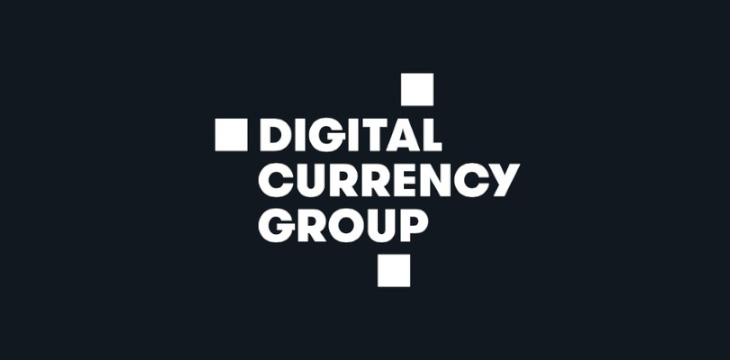|
Getting your Trinity Audio player ready...
|
In the BTC economy, most things thrive on memes about decentralization, opposition to central banking, criticisms of fiat currency and a notion of self sovereignty. Small blockers pride themselves on independence from the mainstream and reliance on nothing but their home node.
But all is not well with the blockchain world. In reality, most developers, infrastructure partners, crypto news media, influencers, exchanges, custodians and hash power are owned by a very small group of venture capital circles. Reid Hoffman, for example, sits on the board of Microsoft by way of LinkedIn, and also sits on the board of Blockstream; creating an unholy trinity of big tech titans and BTC.
What do LinkedIn and Blockstream have in common? pic.twitter.com/iCCeTaGeXB
— Kurt Wuckert Jr | GorillaPool.com (@kurtwuckertjr) May 4, 2022
But that’s for another story!
Digital Currency Group (DCG) is one of the major centers of “big tech” and “old money” control in the BTC economy. They are a conglomeration of venture capitalist groups founded in 2015 and managed by famous Wall Street investment banker Barry Silbert with money from Mastercard, Bain Capital, Transamerica Ventures, CME Ventures, FirstMark Capital, and New York Life, among others.



According to Silbert, “What we’re building is the largest early-stage investment portfolio in the digital currency and blockchain ecosystem,”
And he was/is doing it alongside a very interesting group of advisors from the old-world financial sector.
- Glenn Hutchins, New York Federal Reserve Board Member.
- Lawrence Summers, Federal Reserve Chairman nominee and World Bank Chief Advisor.
- Matt Harris, Partner at Bain Capital (A firm founded by Mitt Romney.)
The DCG portfolio is managed by Grayscale Investments and Genesis Trading which are companies created by Silbert that preceded the creation of DCG, and they collectively own CoinDesk publishing as a public relations wing to their empire. The group also boasts a large stake in most of the significant names in the bitcoin economy: Coinbase, Abra, BitGo, Kraken, Lightning Labs, Ripple, Blockstream, Xapo, BitPay, BlockchainDotCom, Circle, and many, many more. In classic venture capitalist fashion, DCG’s control of so much of the ecosystem allows them to heavily influence various narratives and assure victory regardless of variable outcomes.
Laura Shin stated in Forbes in 2015, “…the exchanges they’ve invested in account for 40% of all global Bitcoin trading volume, which gives the company an opportunity to work on global exchange alliances, standardization and cross collaboration. This is just one example of how Silbert envisions the company will foster the digital currency ecosystem.”
This sounds like a really nice way of saying that DCG intended to control the ecosystem, and in many ways they ended up doing precisely that.
Considering DCG’s role in the scaling debate, New York Agreement and the conflicts of interest within their own portfolio, it becomes conceivable that everything we went through in bitcoin may have been according to a centralized plan, rather than as an organic product of competing influences. Is it possible that the New York Agreement (the most popular plan to ever gain traction in raising the block size limit of BTC) was simply a ruse designed to remove power from Chinese interests and the bitcoiners who sought to see honest nodes govern consensus? It’s possible, yes.
With miners signaling “NYA” as a means to declare support for raising the block size limit by cooperation among honest nodes, small blockers were able to change the entire course of bitcoin’s history swiftly and with very little practical resistance. Within months, the popular NYA was dead, the big blockers had split, and all of the people advocating to change the protocol away from bitcoin’s antifragile incentives were suddenly in charge of the largest proof of work network on earth. Big blockers were all taken for a ride down a path that led to very convenient outcomes for the parent companies across the portfolio, and heavily to the detriment of bitcoin itself, and it seems clearer as time goes on that DCG is little more than a front to destroy Bitcoin and rewrite the history of Satoshi Nakamoto.
Fast forwarding
DCG is not talked about nearly as much as they used to be, and this could also be by design. The culture has decided that BTC was never an electronic cash system, and BTC conferences are sponsored by payment companies like CashApp which were built on the warm grave of BTC’s disruptive payment features.
But their portfolio companies still persist. Incubated by big tech and big finance, companies like Blockstream, Coinbase, BitPay and Kraken are now suing Dr. Craig Wright in an attempt to remove his rights to the Bitcoin White Paper and silence the big blockers forever. And Wright recently announced litigation against Coinbase, Kraken and others to remove their ability to use “Bitcoin” to describe BTC, BCH and other assets under the auspices that their use of the Bitcoin name is a sort of consumer fraud known as “passing off.”
Will the Bitcoin fight go on forever? It’s been said that the price of liberty is eternal vigilance. Perhaps this is also our challenge in Bitcoin.
Follow CoinGeek’s Crypto Crime Cartel series, which delves into the stream of groups—a from BitMEX to Binance, Bitcoin.com, Blockstream, ShapeShift, Coinbase, Ripple,
Ethereum, FTX and Tether—who have co-opted the digital asset revolution and turned the industry into a minefield for naïve (and even experienced) players in the market.

 03-02-2026
03-02-2026 




